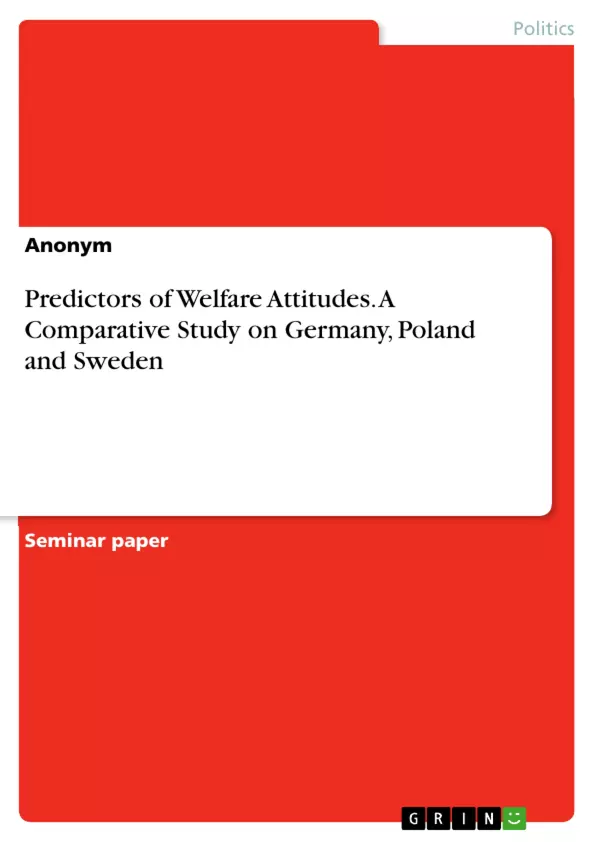This report explores to what extent different factors have an influence on the support for a basic income scheme in the European Union, focussing on Germany, Poland and Sweden. These factors focussed on in this report are a left/right scale on which respondents place themselves, whether respondents have enough money for household necessities and if the respondents are satisfied with the current state of the economy.
As formulated in the hypotheses, it is expected that ‘more left’ people, people with not enough money, and people with a more negative perception of the economy’s state are more in favour of a basic income scheme. The last hypothesis compares the data of the three countries to see which country has the biggest effect on the support for a basic income scheme for the factor of enough money for household necessities. T
These relationships are explored via the use of SPSS and the data of ESS8 is provided by the University of Twente. These relationships are tested via bivariate and multiple regression analyses in SPSS. Through this analysis, it was found that Germany and Sweden are in line with the formed hypotheses, whereas the analysis of Poland provided insignificant results for two hypotheses.
Inhaltsverzeichnis (Table of Contents)
- Introduction
- Theory and Hypotheses
- Data and Operationalization
- Analysis and Results
- Conclusion and Discussion
Zielsetzung und Themenschwerpunkte (Objectives and Key Themes)
This report aims to investigate the factors influencing support for a basic income scheme in the European Union, specifically focusing on Germany, Poland, and Sweden. The study examines the relationship between support for a basic income scheme and individuals' political orientation (left-right scale), financial security (ability to afford household necessities), and satisfaction with the current state of the economy.
- Factors influencing support for a basic income scheme
- Comparative analysis of support for a basic income scheme across Germany, Poland, and Sweden
- Impact of political orientation on support for a basic income scheme
- Influence of financial security on support for a basic income scheme
- Relationship between satisfaction with the economy and support for a basic income scheme
Zusammenfassung der Kapitel (Chapter Summaries)
- Introduction: This chapter introduces the concept of a basic income and its relevance in today's society, particularly in light of technological advancements and potential job displacement. It also outlines the research question and the objectives of the study.
- Theory and Hypotheses: This chapter presents the theoretical framework underpinning the study, outlining the hypotheses that will be tested. The chapter explains the factors to be examined (political orientation, financial security, and satisfaction with the economy) and their expected relationship to support for a basic income scheme.
- Data and Operationalization: This chapter describes the data used in the study, which is sourced from the European Social Survey Round 8 (ESS8). It explains the operationalization of key variables, including how political orientation, financial security, and satisfaction with the economy are measured.
- Analysis and Results: This chapter presents the results of the statistical analysis conducted using SPSS. It examines the relationship between the chosen factors and support for a basic income scheme, focusing on bivariate and multiple regression analyses. The chapter discusses the findings and their implications for the hypotheses.
Schlüsselwörter (Keywords)
The primary keywords and focus topics of this study include: basic income scheme, welfare preferences, political left-right scale, state of economy, insufficient income, comparative study.
- Quote paper
- Anonym (Author), 2020, Predictors of Welfare Attitudes. A Comparative Study on Germany, Poland and Sweden, Munich, GRIN Verlag, https://www.hausarbeiten.de/document/945201


